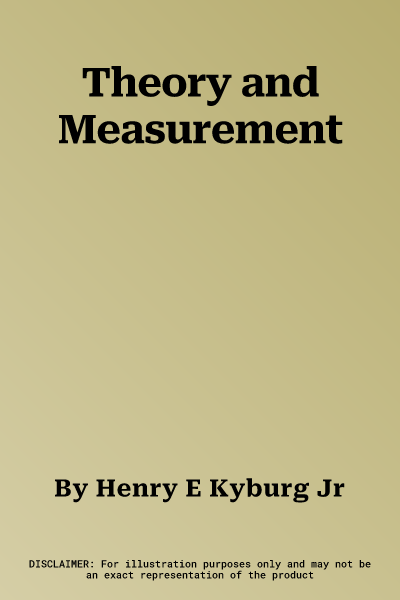Henry E Kyburg Jr
(Author)Theory and MeasurementHardcover, 27 July 1984

Temporarily out of stock
Free Delivery
Cash on Delivery
15 Days
Free Returns
Secure Checkout

Part of Series
Cambridge Studies in Philosophy
Part of Series
Cambridge Studies in Islamic Civilization
Print Length
273 pages
Language
English
Publisher
Cambridge University Press
Date Published
27 Jul 1984
ISBN-10
0521248787
ISBN-13
9780521248785
Description
Product Details
Author:
Book Format:
Hardcover
Date Published:
27 July 1984
Dimensions:
21.59 x
13.79 x
2.01 cm
ISBN-10:
0521248787
ISBN-13:
9780521248785
Language:
English
Location:
New York
Pages:
273
Publisher:
Weight:
480.81 gm